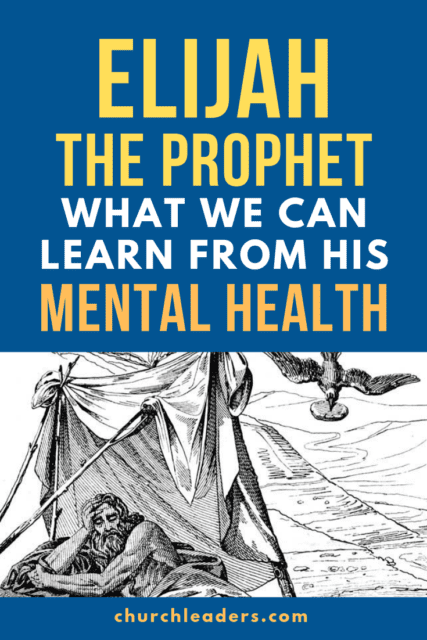- God allowed Elijah the Prophet time to rest and receive refreshment.
- As he slept under a tree, suddenly an angel touched him and said, “Arise and eat.”
- Then he looked, and there by his head was a cake baked on coals, and a jar of water. So, he ate and drank and lay down again.
- The angel of the LORD came back the second time, touched him, and said, “Arise and eat, because the journey is too great for you.” Elijah’s ministry was not over. God is not through with us yet.
- So, he arose, and ate and drank; and he was strengthened by the food that God had provided for him, sustaining him those forty days and forty nights as far as Horeb, the mountain of God.
- The principle here is simple—to overcome stress, we need to rest our bodies. Sometimes the most spiritual thing we can do is not take on another project but kick back and rest. Delegate some work to your helpers; Elijah failed to take his helper with him.
- Elijah had spent a great deal of energy fighting for God and now he is physically and emotionally spent.
God provided for his physical needs; he provided food and water and allowed Elijah the Prophet to get much-needed rest. God did not even begin to deal with Elijah’s depression or wrong thinking until he was rested and refreshed. He confronted Elijah with truth.
Upon arriving on the mountain, Elijah took up residence in a cave. There, God began to deal with Elijah’s threefold need:
- He needed to face his fears. God asks, “What are you doing here, Elijah?” It was not that the Lord did not know. This question was not for God’s benefit, but for Elijah’s. The question is twofold: First, “Elijah, what are you doing?” Obviously, Elijah is in a self-imposed isolation, brooding and indulging in self-pity.
- The second time God asked the same question, “What are you doing here? Here is not the place I command for you. Here is not the place of blessing.” Elijah responds by saying, “I have been very zealous for the LORD God of hosts; for the children of Israel have forsaken your covenant, torn down your altars, and killed your prophets with the sword. I alone am left; and they seek to take my life.” Note that Elijah completely missed the point here.
- God asked a present tense question, “What are you doing here?” Elijah answered with a past tense response. Everything he spoke about was in the past. Elijah the Prophet did have a tremendous past, but the question is, “What are you doing now?”
Sometimes we are so busy in the King’s business that we neglect the King. There are times life gets taxing with its stress, burdens, and pressures, and we lose our focus. We desperately need to refocus on God. Psalm 46:10 says, “Be still and know that I am God.” We must learn as Elijah did to look for God in the trivial things of this life.
If we pay attention, we will begin to see God in our everyday life, in a phone call of encouragement offered to someone, an unexpected kindness or a card in the mail, an answered prayer, or someone just calling or showing up at the right moment. God always speaks loudly enough for the willing ear to hear. Elijah the Prophet needed a fresh revelation from God at times, and we do as well. Just listen to the voice of God and hear His instructions for you.














